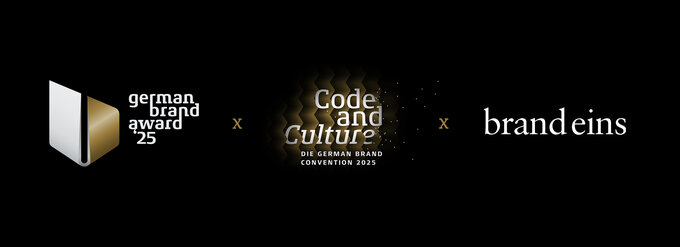German Brand Awards 2025: Where Social Impact Meets Brand Excellence
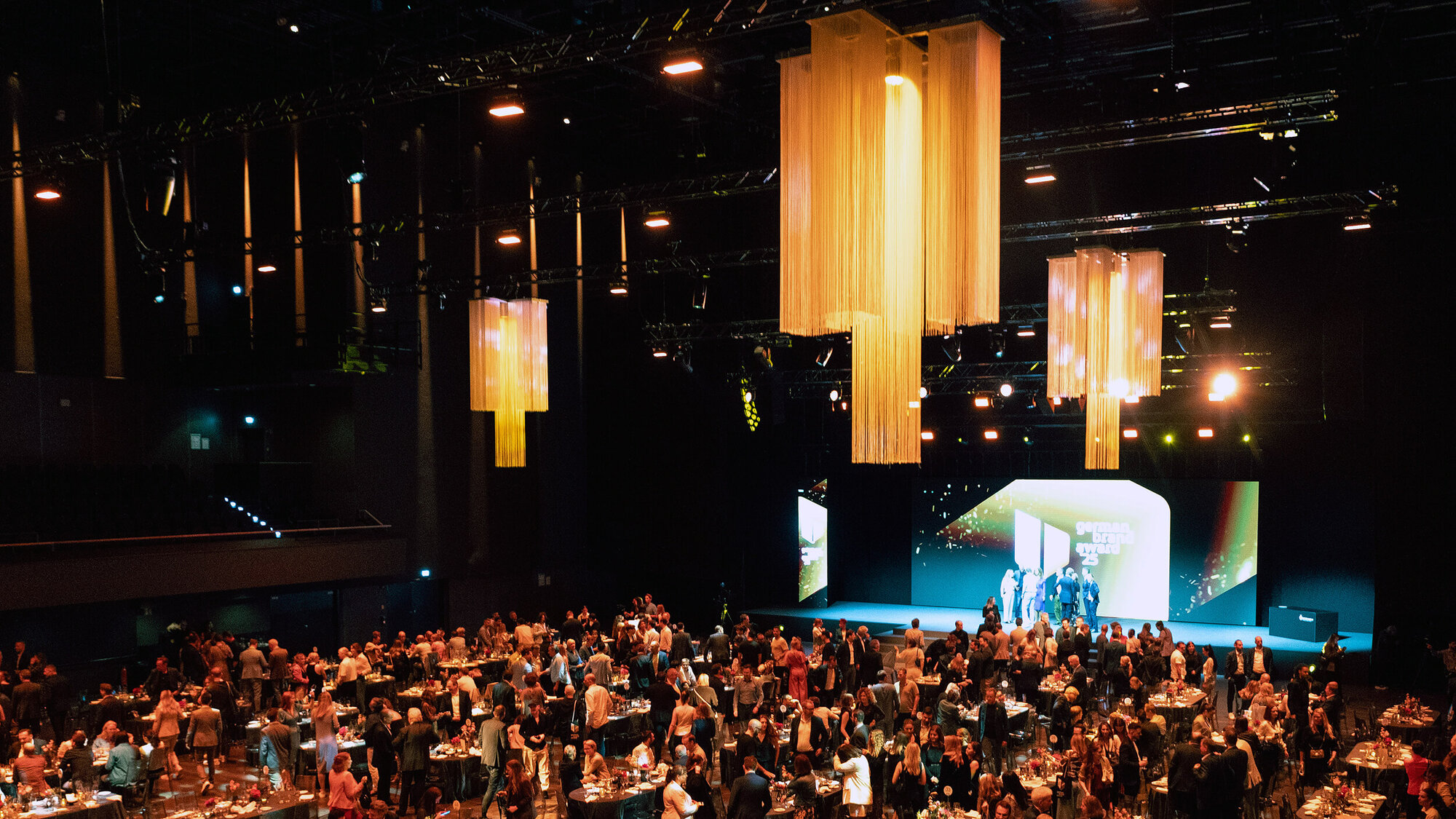
"Use your talent for something good – especially when the world and democracy are under pressure," urged Franziska Giffey in her closing speech at the awards gala. Berlin’s Mayor and Senator for Economic Affairs addressed an audience of 700 brand professionals from around the world, gathered at the Uber Eats Hall Berlin for the German Brand Awards ceremony on June 26, 2025.
Many of this year’s Best of Best distinctions and all three honorary awards recognised brands that act with integrity, and pursue goals rooted in responsibility and long-term impact.
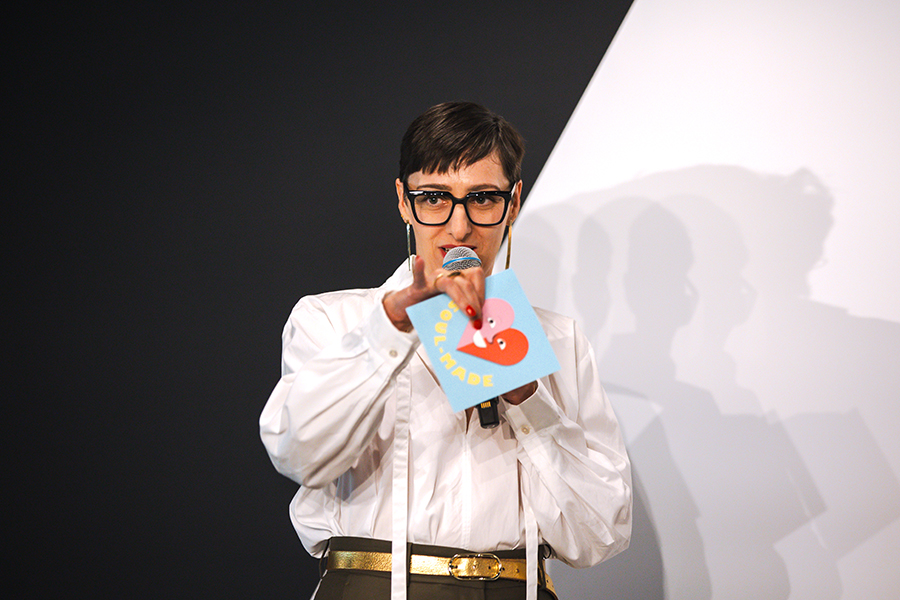
From Networking Hub to Industry Stage
Earlier that day, the Brand Convention laid the groundwork for what was to come – and proved that networking today means shaping the future together. Under the theme Code and Culture, this year’s programme spotlighted the trends redefining brand leadership: artificial intelligence, circular branding, and values-based strategy.
The Age of AI Agents, moderator Holger Volland, CEO of brand eins, asked the audience, “Who here has already used AI today?” – with many hands raised in response. Attendees were clearly tech-savvy, and the discussion left no doubt: alongside Dr Frederike Fritsche (OTTO) and Svetlana Jackel (Kombinatrotweiss), the panel explored the potential and limitations of AI in brand contexts. One key takeaway: AI is neither a miracle cure nor a threat. But for brands to stay relevant, they must learn to let go – and see design as a tool for forward thinking.
In the session Circular Business & Brand, Dr Matthias Ballweg (Circular Republic) and Sven Schneider (Interstore/Schweitzer Project) joined moderator Prof Dr Simone Roth (Ruhr West University of Applied Sciences) to discuss how ecological necessity can drive entrepreneurial strength. Schneider summed it up: “We need to rethink materials and systems – not because we have to, but because there are better solutions.” Circular branding, the panel concluded, is not optional. It’s the path to resilience and relevance.
The discussion continued in Next Stop: Circular Future. Moderator Dr Max Marwede spoke with Anne Farken (BMW Group/Designworks) and Maximilian Mauracher (NEW STANDARD.STUDIO) about what genuine circularity really demands. “Many companies think they’re circular because their packaging is recyclable,” said Mauracher early on. “But that’s just the beginning.” Circular business starts with an honest audit – and the courage to rethink business models from the ground up. In this, design plays a crucial role. Not as styling, but as a strategic tool. “Design is the ability to make complexity legible,” said Farken. Their conclusion: the circular economy is not a limitation – it’s an invitation to redefine your brand’s role. Those who take that seriously will remain relevant, not despite the shift, but because of it.
Key Learnings
- Design fosters trust and acceptance
- Tech transformations are neither threats nor silver bullets
- Future-facing brands win through clarity, vision, and values
Purpose-Driven Winners
1KOMMA5° claimed the Startup of the Year title with a compelling live pitch for climate-friendly energy solutions. The Hamburg-based energy provider showed how young brands can become powerful agents of social transformation.
The honorary title Brand Manager of the Year was awarded to Martin Höfeler, who has spent the past 18 years building Armedangels into one of Europe’s largest sustainable fashion labels. A powerful example of consistent, values-driven leadership.
Too Good To Go received the honorary distinction Best Purpose of the Year. Since 2016, the company has saved over 400 million meals and grown into a global movement against food waste.

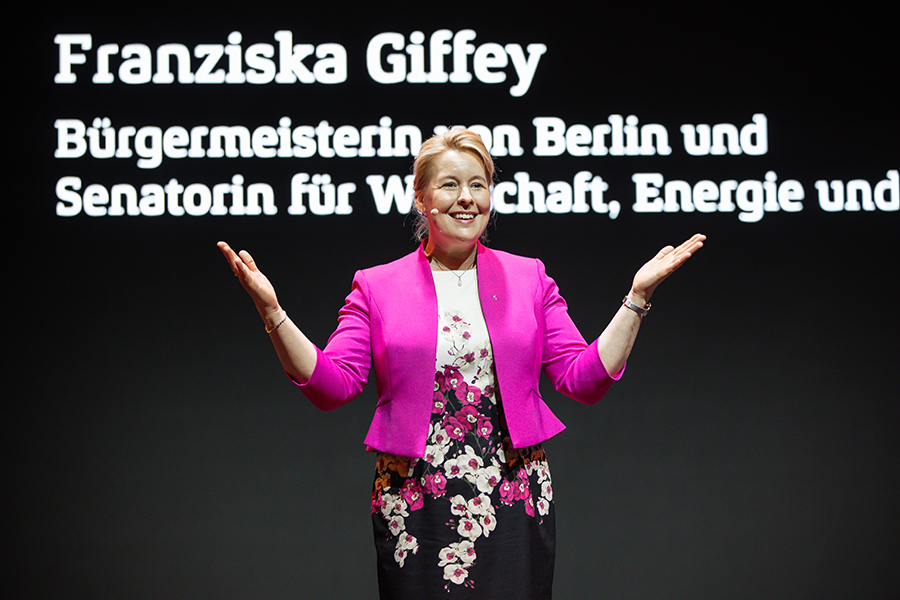
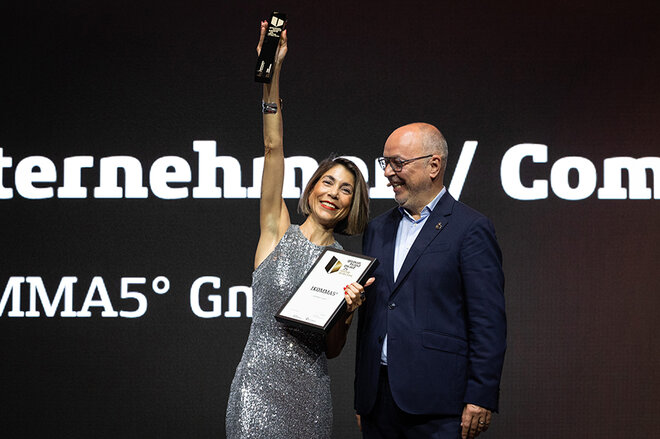
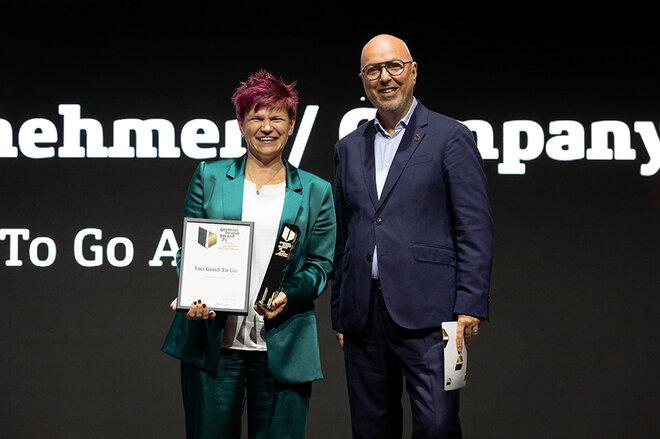
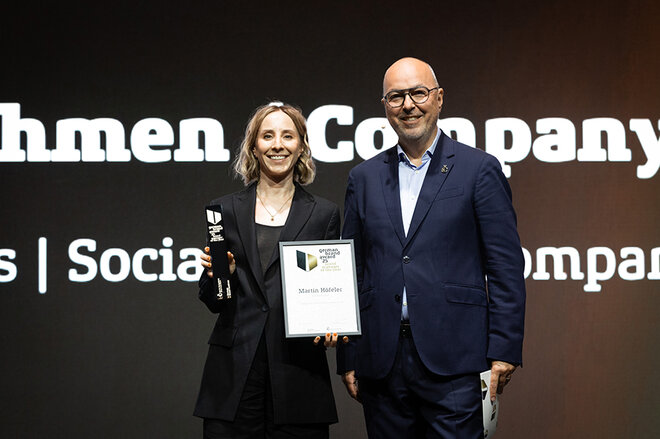
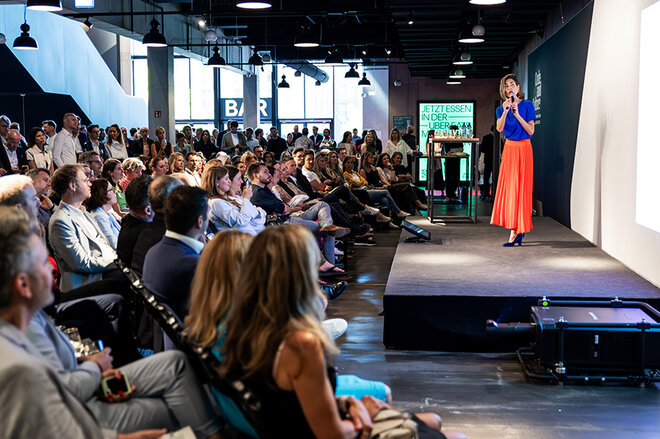
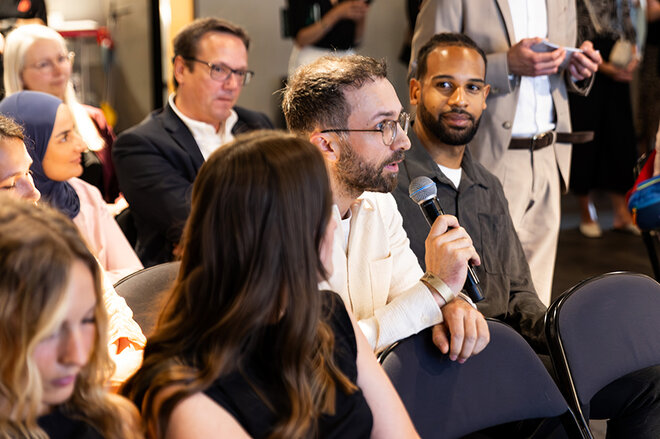
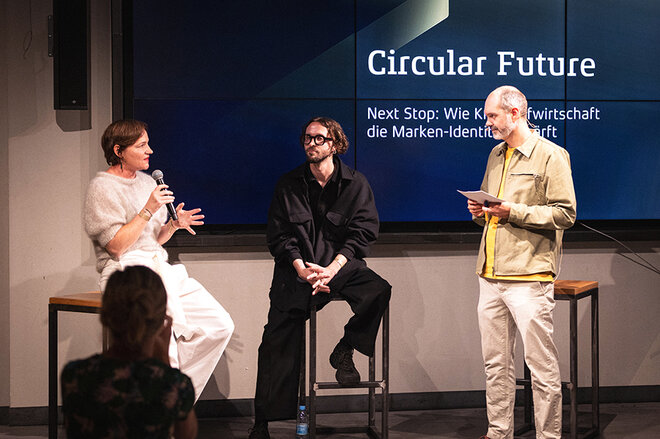
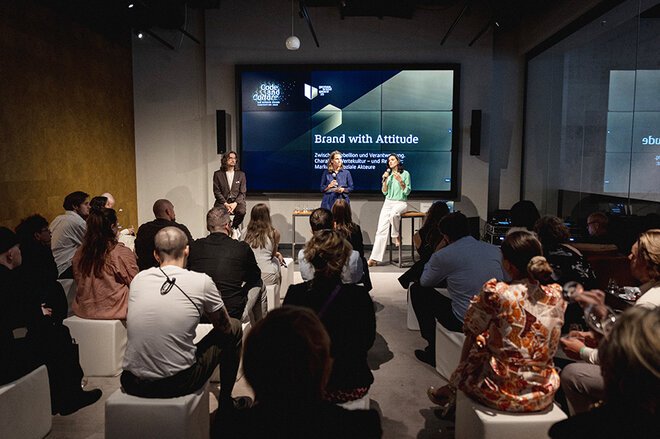
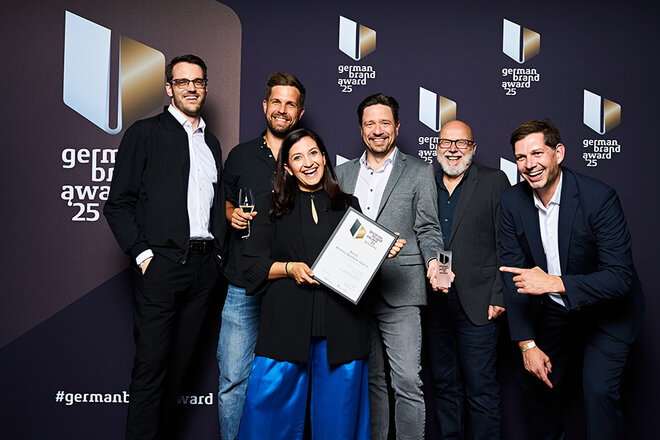
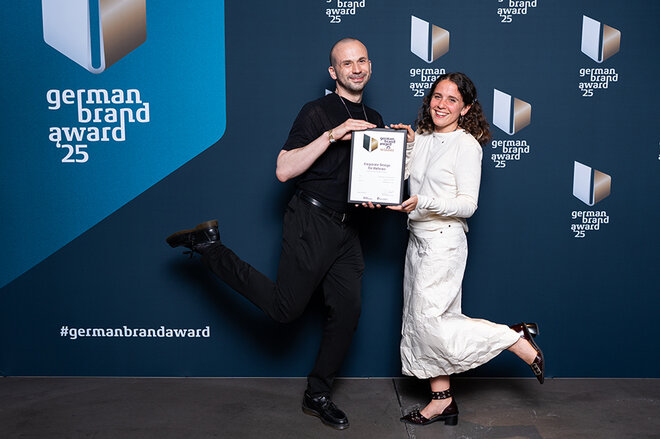
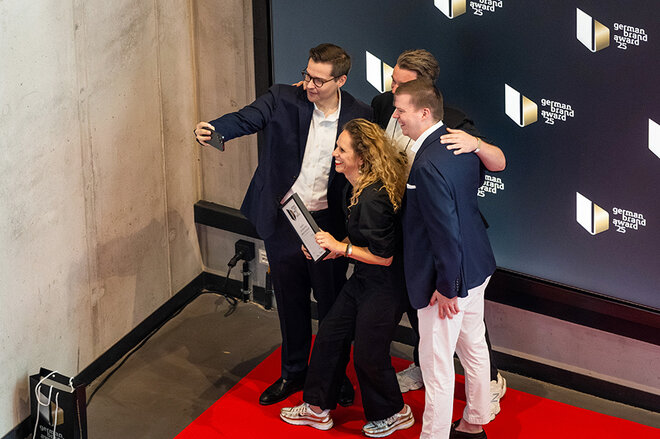
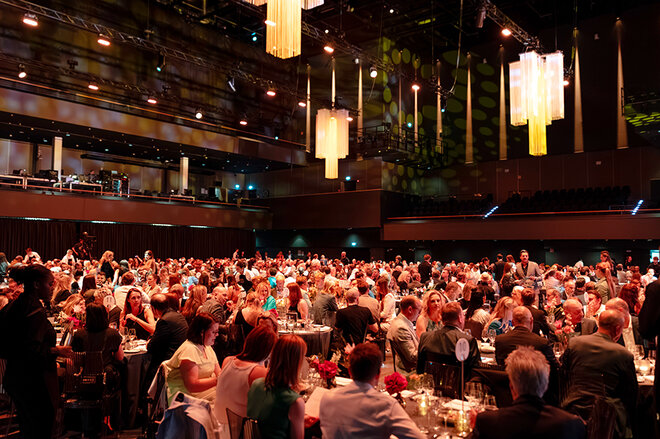
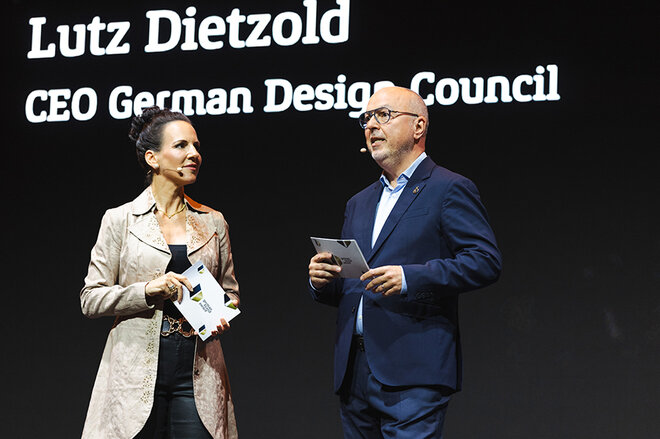
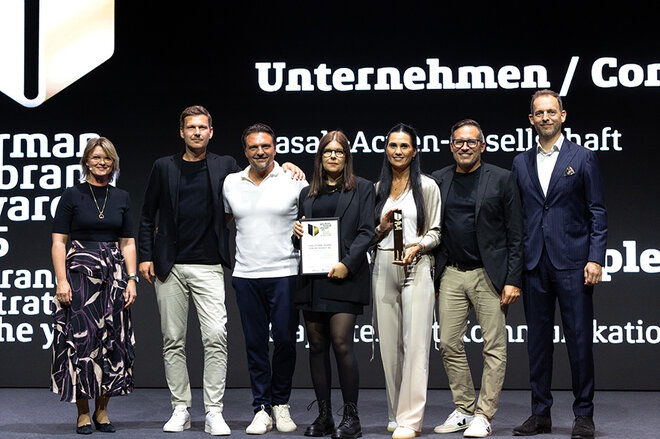
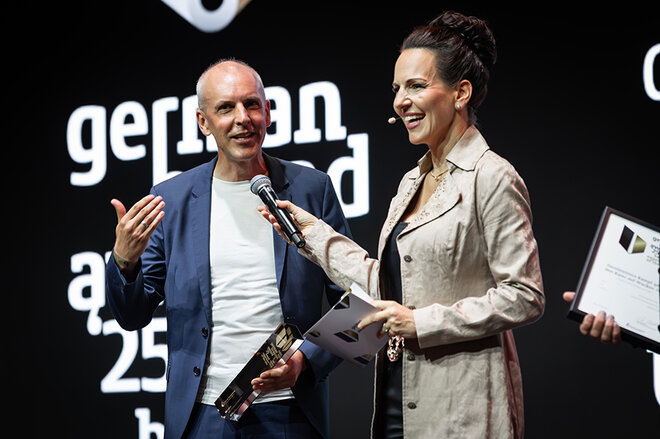
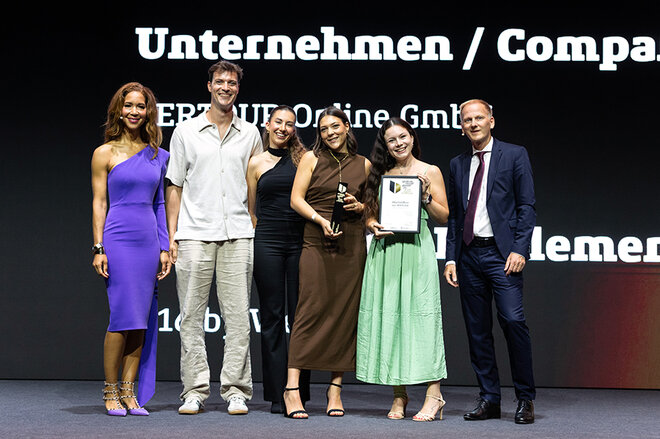
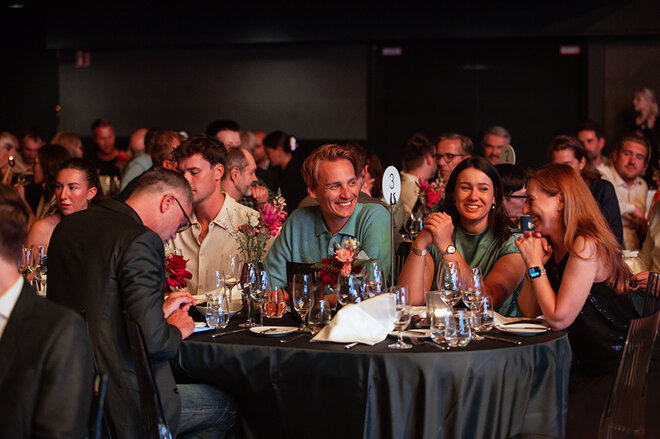
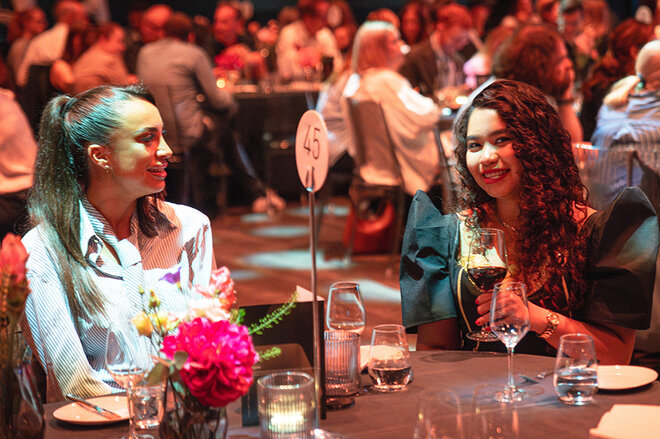
![[Translate to English:] [Translate to English:]](/fileadmin/_processed_/c/e/csm_german-brand-award-news-relaunch_07b36514a8.jpg)
